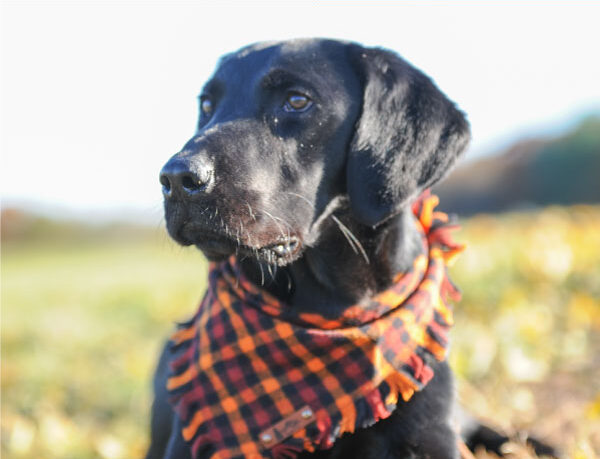our mission
Foliage Retrievers was started with the mission of placing highly-skilled service dogs with women and civilians with PTSD. Currently, a majority of service dog organizations do not train psychiatric service dogs, or they do not place service dogs with women or civilians with PTSD. One of FRSD’s goals is to serve underserved populations, which currently includes women or civilians with PTSD, however, we do invite other individuals that are currently underserved to apply as this helps us learn more about gaps in access to service dogs in the United States. As Foliage Retrievers Service Dogs grows as an organization we hope to reach more individuals and bridge gaps in access to service dogs for individuals with disabilities.
OUR VALUES
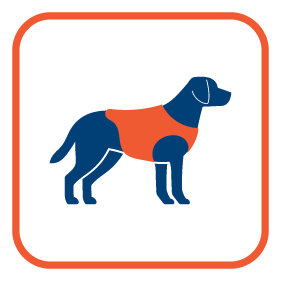
Compassion
We understand that applying and receiving a service dog is a new process for many of our prospective clients. We want to ensure that the experience is personal, positive and that our clients feel comfortable and supported.
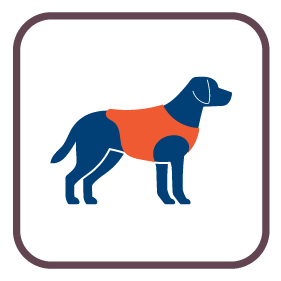
Respect
Respect is integral to the success of our teams. We pride ourselves on taking the utmost care in selecting dogs for our clients. Our matching process has been carefully designed to give our teams the best partners possible.
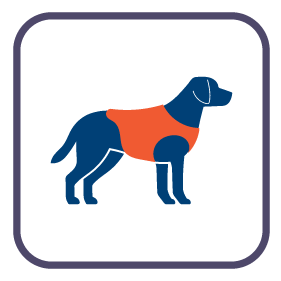
Trust
Individuals trust us to provide them with a service dog to help them navigate life more independently. We also trust our clients to work with and care for their dogs, let us know of any challenges they face, and allow us to help foster a beautiful partnership between our clients and their dogs.
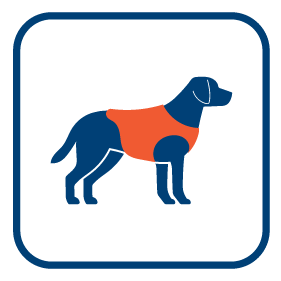
Teamwork
It takes hundreds of people and experiences — and even more hours — to create an exceptional service dog. Teamwork is at the core of our program. We cannot do our work without our board members, volunteers, interns, the public, or our life-changing dogs.
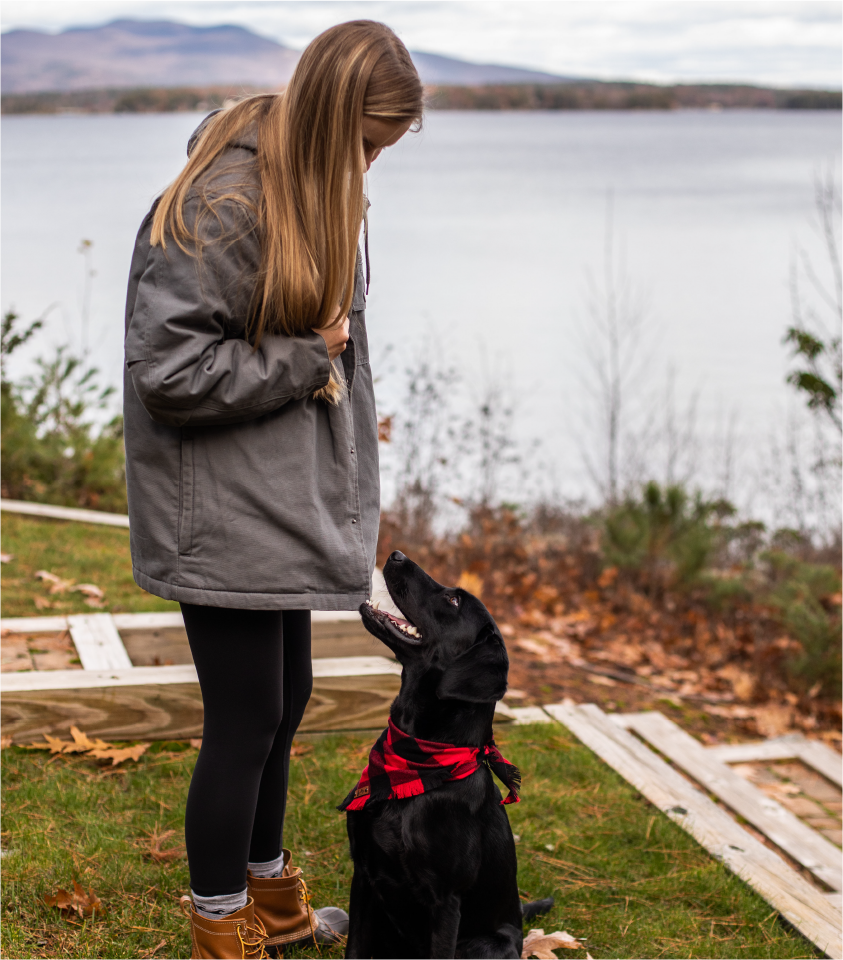
our story
My name is Martha, and I am the President and founder of Foliage Retrievers Service Dogs.
I founded FRSD after learning that despite having multiple debilitating chronic illnesses and a diagnosis of PTSD, I was ineligible for a service dog from most organizations.
I was perplexed…how could it be? There are a multitude of organizations that serve veterans with PTSD. Yet, as a civilian and as a woman, I was ineligible to receive a service dog that I very much needed.
I soon learned that owner training was an option and I embarked on the journey of training my first service dog, Yoda. I spent time learning from and consulting with many talented trainers, shadowing, interning, and working as a dog trainer.

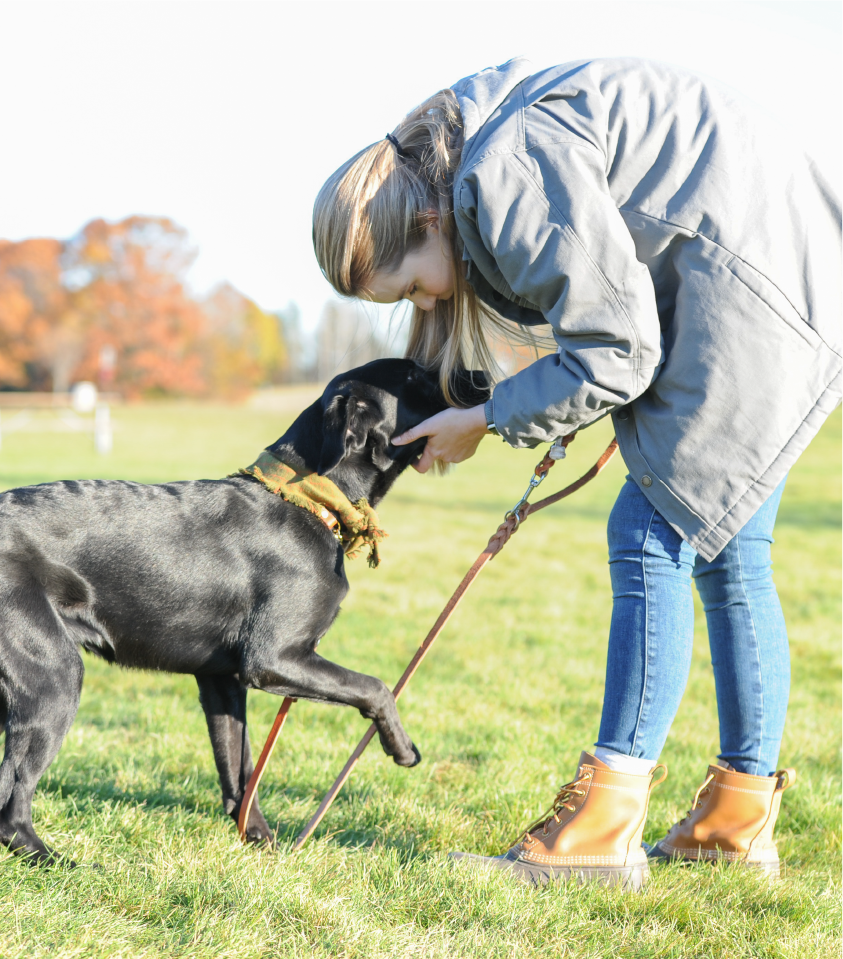
While I have my owner-training experience to thank for my beloved career, it is not ideal. I encountered enumerable challenges while raising my first and subsequent dogs.
In March of 2020, my first dog, Yoda, was diagnosed with lymphoma. Before Yoda, I lived in darkness. I struggled with my health and the symptoms of my disability which impacted my attendance in college. The semester before bringing Yoda home, I missed over 40 days of school. In the first semester of having Yoda and having him attend classes with me, I only missed 10 days. He helped me graduate college. I was on a trajectory of not being able to remain on campus, and I had to consider alternative treatment options to allow me to finish school.
Learning that I was ineligible for a dog from service dog organizations was a punch to the gut. Realizing that I had been denied access to receiving a service dog because I did not fit the criteria of being a veteran was heartbreaking. I felt deeply invalidated by a community that should be accessible and accommodating.

I founded FRSD after learning that despite having a diagnosis of PTSD, I was ineligible for a service dog from most organizations.
martha, president + founder
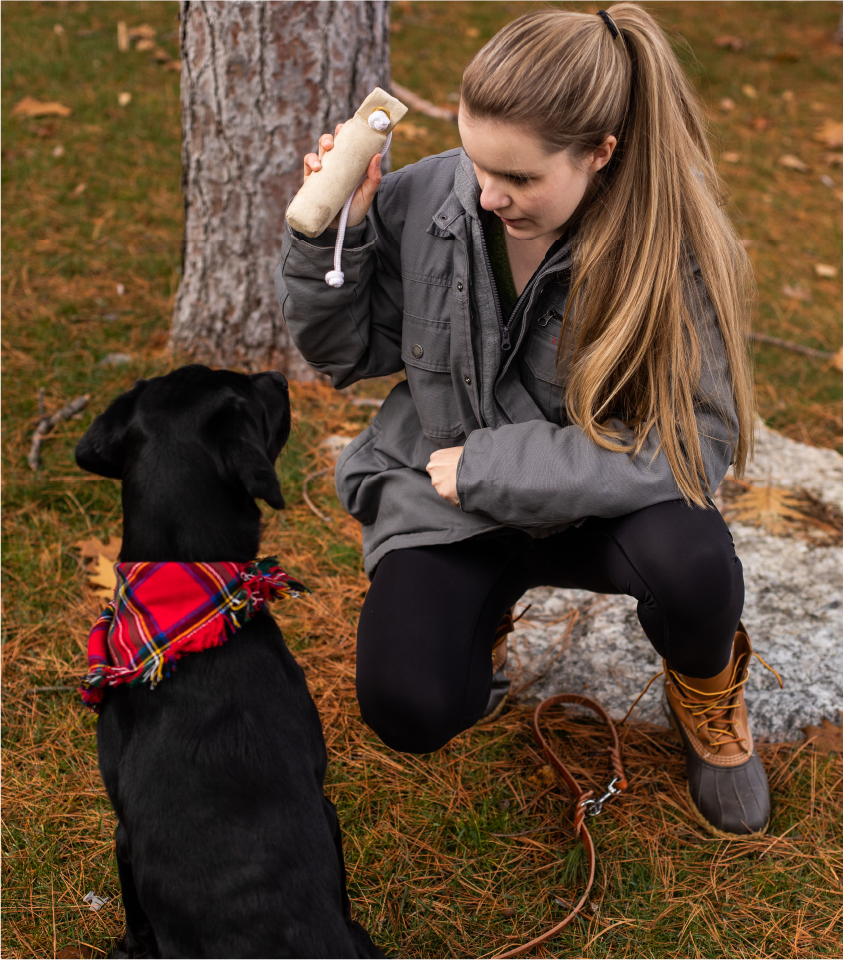
I saw receiving a service dog as a liferaft and an irreplaceable part of my treatment plan. There I was, researching numerous organizations across the country and the globe, and not one of them would place a dog with me, even though I was, in fact, disabled. I soon realized that I was about to join a whole community of individuals that did not meet the outdated view of disability and accessibility, owner trainers.
Along my journey of training service dogs for myself and assisting owner trainers with their service dogs, I kept thinking about how much my service dogs had changed my life. I thought about how unfair it was that there wasn’t a single non-profit service dog organization that would train a dog to fit my needs during one of the most challenging periods of my life. After speaking with clients, family, and friends, I decided that I would stop the cycle of needing to owner-train to be eligible for a service dog.

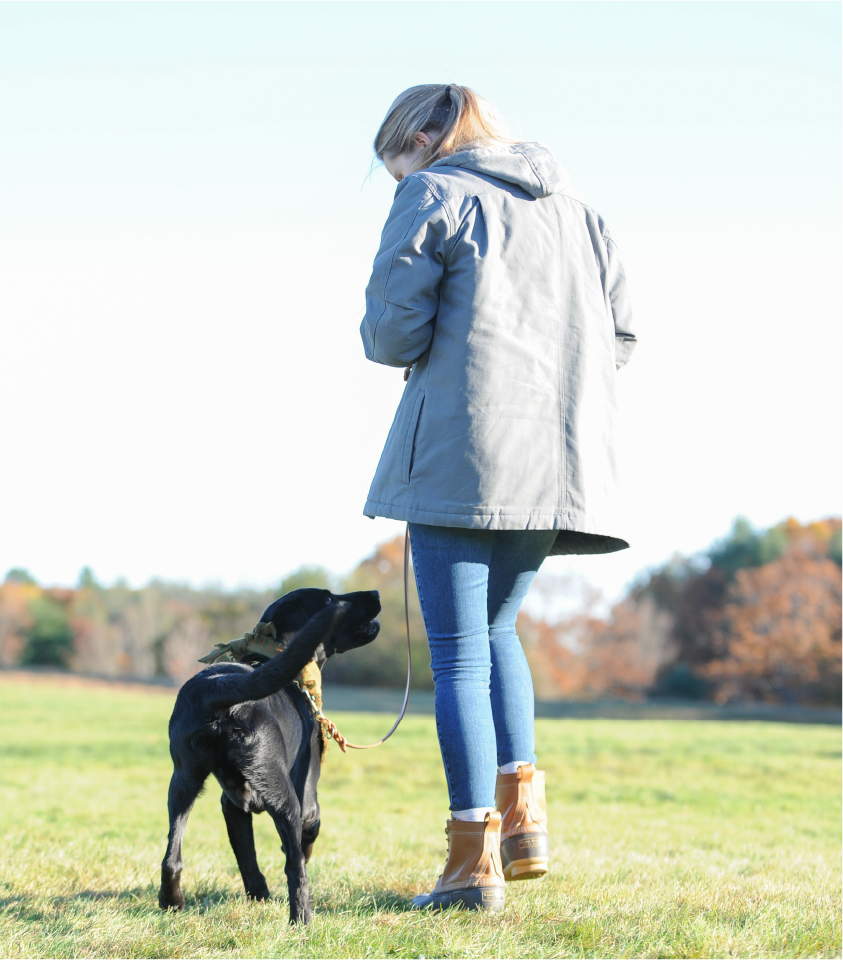
I felt that denying women and civilians with PTSD a service dog was deeply unfair. Is a service dog not beneficial to women and civilians? My service dog changed my life.
Owner-training is not for everyone. Owner-training is tedious expensive, and there is a severe lack of resources on the matter, and the information that exists can be expensive, outdated, or even inaccessible. I strongly believe that owner-training should remain an option for those that choose to raise their own service dogs; however, with the opening of Foliage Retrievers Service Dogs, I hope to make owner-training a choice, not a necessity.
As Foliage Retrievers Service Dogs grows, we hope to begin to serve more underserved disabled individuals interested in receiving a service dog. We currently only serve New England; however, in the future, our goal is to be able to supply dogs to clients across the United States.



